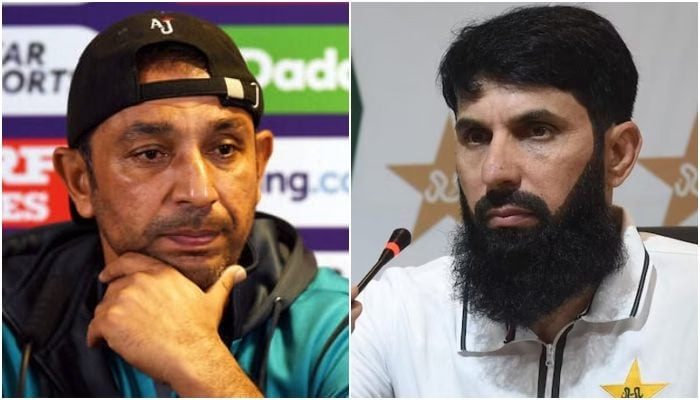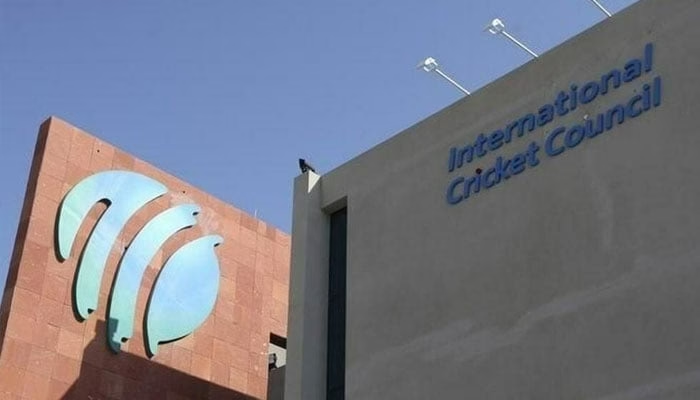A day after Azhar Mahmood was officially announced as the acting red-ball head coach of the Pakistan men’s cricket team, former cricketer Basit Ali has come forward with explosive claims, shedding light on the behind-the-scenes maneuvering that allegedly influenced the Pakistan Cricket Board’s (PCB) decision.
On Monday, the PCB confirmed the appointment of the 50-year-old former all-rounder, stating that he will serve in the red-ball head coach role until the end of his current contract, which expires in April 2026. Mahmood had previously signed a two-year agreement with the board in April 2024 and had already served as the national team’s assistant coach on several occasions.
As per the official announcement, Mahmood’s first assignment in his new capacity will be leading the team into the ICC World Test Championship (WTC) 2025–27. Pakistan will kick off their campaign with a two-match home Test series against South Africa scheduled for October-November, followed by a two-Test away tour of Bangladesh in March-April 2026.
However, speaking on a local YouTube channel, Basit Ali—former Test cricketer and cricket analyst—revealed that Azhar Mahmood’s appointment came only after a significant shift in internal preferences within the PCB. According to Basit, Misbah-ul-Haq was initially poised to return as the head coach, and the decision had, in fact, been nearly finalized. But a combination of internal lobbying and last-minute votes allegedly changed the outcome.
“Misbah was about to become the head coach, but things change with the wind,” Basit claimed. “Now, considering what Aqib Javed said and what captain Salman Ali Agha said, Azhar Mahmood has been made the red-ball coach. I’m telling you this with full authenticity. Otherwise, Misbah had already been finalized for the role.”
The claims suggest that the final decision may have been swayed by powerful individuals within the PCB, including Director of High Performance Aqib Javed and current T20I captain Salman Ali Agha. According to Basit, their support was pivotal in tipping the scales in Mahmood’s favor.
“It’s because of Salman Ali Agha’s vote that Mahmood was given the role of interim coach. Some things are like that — we can’t speak about them openly; we also have to be considerate,” Basit added, hinting at internal politics and hidden power plays influencing crucial appointments.
This revelation has sparked debates about the transparency and fairness of decision-making processes within the PCB, especially in light of its recent history of abrupt changes and inconsistent treatment of coaching staff.
Basit further criticized the board for the delayed announcement of Mahmood’s appointment and raised questions about the treatment of previous mentors who were let go, despite having long-term contracts. “This delay that’s been happening — as you just mentioned, Mahmood’s contract is until April 2026 — well, the mentors also had a three-year contract. So what happened? Why were they sidelined after being paid off?” he questioned.
He highlighted that earlier coaches and mentors were removed from their positions before the end of their contracts, often without proper justification. Yet, in the case of Mahmood, a long-term contract appears to have been given significant weight. This inconsistency, Basit argues, reflects poorly on the board’s governance and decision-making standards.
“If you’re using a scale of fairness, it should be applied equally to everyone,” he said. “You didn’t let the mentors work for three years. If you intended to remove them, you could have done the same here — paid one or two months’ salary and let them go.”
His remarks bring to the forefront a broader concern about the instability within Pakistan cricket’s coaching structure. Over the years, coaching appointments have frequently been surrounded by controversies, early terminations, and power struggles. This pattern has raised concerns among analysts and former cricketers, many of whom believe that political considerations and internal lobbying often outweigh merit and long-term planning in the PCB’s decisions.
Azhar Mahmood’s coaching credentials are not in question. A former pace-bowling all-rounder who played 21 Tests and 143 ODIs for Pakistan, he transitioned into coaching after retirement and has gained valuable experience as a coach in various T20 leagues around the world. He also previously worked as Pakistan’s bowling coach from 2016 to 2019, and later served as an assistant coach, making him a familiar figure within the dressing room.
His understanding of the team culture and rapport with players are expected to be assets in his new role. However, given the context surrounding his appointment, some critics argue that he may face challenges establishing authority or navigating internal dynamics—especially if his elevation is viewed as politically motivated.
Moreover, the way his appointment was handled—amid reports of a nearly finalized deal with Misbah-ul-Haq—has also raised eyebrows. Misbah, a former Pakistan captain and head coach, remains a respected figure in the cricketing community. His potential return to the coaching setup would have brought a different level of experience and stability. However, according to Basit Ali, last-minute shifts in internal politics ultimately blocked that move.
This isn’t the first time the PCB’s coaching decisions have come under scrutiny. In the past, several high-profile coaches have exited under controversial circumstances—some mid-contract, others after short and unproductive tenures. This repeated pattern of instability and apparent lack of long-term planning has often been criticized as a key reason for Pakistan’s inconsistent performances in international cricket.
Basit’s latest claims only serve to intensify the spotlight on the PCB’s internal workings. While Mahmood will now lead Pakistan’s red-ball side into the new World Test Championship cycle, the cloud of controversy surrounding his appointment is unlikely to dissipate soon.
Ultimately, Azhar Mahmood now faces the challenge of proving himself on the field. If he can guide Pakistan to success in the upcoming Test series and build a cohesive, disciplined red-ball unit, he may well justify the board’s faith in him—regardless of how the appointment came to be. But the debate around fairness, transparency, and consistency in the PCB’s decisions is far from over.



